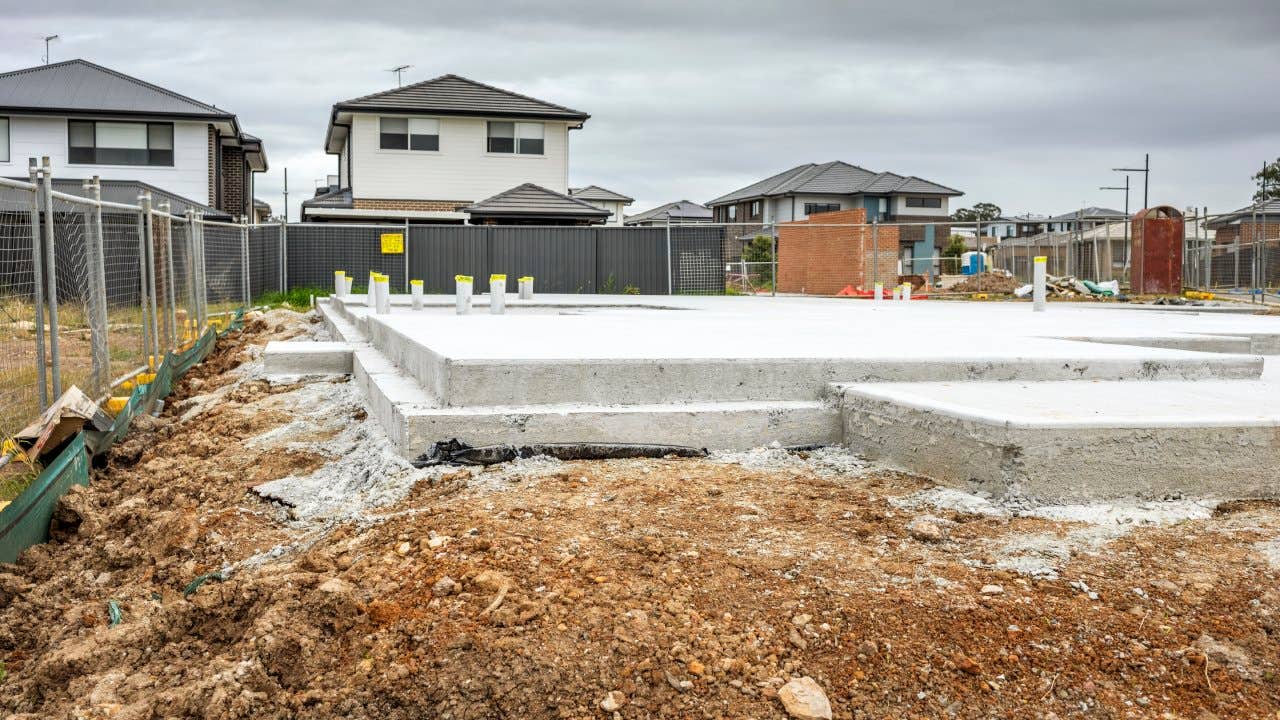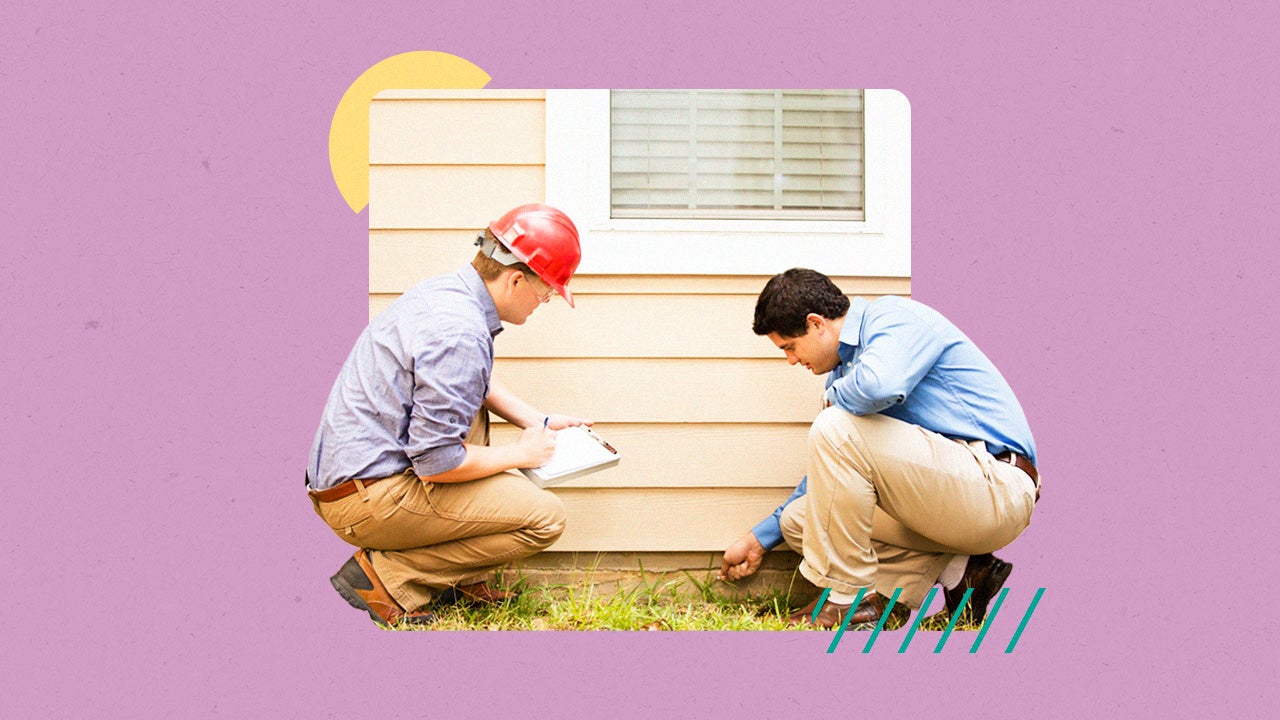How much does a home’s foundation cost?

A foundation is an incredibly important part of any home: It literally is where the house begins and what supports it. A poorly built foundation can cause structural problems, while a well-designed one maintains the integrity of your property — and its value.
The cost of a foundation varies greatly, depending on its size and the kind it is. Overall, the average foundation costs around $9,000-$10,000, with $5,000 to $15,650 the typical range.
Though you personally won’t be building it (probably), it’s useful to understand the basics of foundations if you’re constructing a home or gut-renovating one. Even if you’re buying a previously owned home, it’s good to know about this important indicator of its condition (examining the foundation is a key part of home inspections).
In this guide, we’ll get to the bottom of things, explaining the different types of foundations, and how much they cost to construct.
How do you calculate the cost of a foundation?
There are two main factors to take into account when calculating the cost of a foundation: its size and the type of foundation it is.
A foundation for a large house (more than 2,000 square feet in area) will cost a lot more than a foundation for a small one (1,000 square feet or less). For this reason, the cost of a foundation is often given per square foot.
The second main factor is the kind of foundation method you choose. There are several basic varieties of foundation (more on those further down), and their costs relate to how much excavation, as well as construction, they require. Concrete slab is the most common and cheapest, and costs around $7 per square foot. Pier and beam foundations cost around $9 per square foot, a foundation with and a foundation with a crawl space (a narrow gap between ground and floor, but not a full basement) will cost around $13 per square foot. A full basement (yes, a basement is technically a foundation) costs about $33 per square foot.
Take these two factors together, and you can calculate the cost of an average foundation. A concrete foundation for a single garage of 400 square feet can cost as little as $2,500. In contrast, a full basement for a large house of 2,400 square feet could cost more than $80,000.
Labor costs
The quoted price per square foot of your foundation generally includes the cost of labor. The materials used to construct a foundation are mundane — concrete, wood, steel — and don’t vary much. So much of the cost of your foundation will be the skill, time and effort involved for workers to install it.
40% to 60%
Source: HomeAdvisor
To pour a 1,200-square-foot foundation, for example, $3,100 out of the $7,700 job would be attributed to labor, HomeGuide estimates. But for larger and/or more complex jobs, requiring considerable excavation and construction, the labor can get as high as 75 percent of the overall project’s price.
The cost of labor, and the percentage it contributes to your average spend, also depends on the type of foundation you choose. For example, monolithic slab and cinder block foundations require less work than basements or crawl spaces to install.
Another reason why labor costs are relatively high: Often entire teams are needed to pour a concrete foundation, due to the need for precision and careful timing. For this reason, you shouldn’t try to build a foundation yourself unless you are very experienced and can assemble others to help you.
What do different types of foundations cost?
There are several different types of foundations, and each has different costs associated with its installation. As noted above, the labor involved is one of the main reasons that the cost per square foot of foundations varies by type.
Monolithic Concrete Slab
Also known as slab-on-grade, this is the most common foundation used in the U.S. This type of foundation is essentially a block of concrete poured into place on the earth. As a shallow excavation, it is relatively simple to build and install, but requires level ground and can be unstable in soil with deep frost lines.
Monolithic concrete slab foundations cost between $5.75 and $13.50 per square foot. For a house of around 1,350 square feet, the total cost would be $8,600.
Stem Wall Concrete Slab
A stem wall foundation is a modified type of concrete slab foundation: It also includes a vertical concrete wall that is set deeply into the ground, and used to anchor the horizontal foundation. This method allows a foundation to be built on a slope or in unstable soil.
The wall itself costs around $50 per linear foot; the rest of the foundation costs what a monolithic slab would. So the average cost of a stem wall foundation for a home of 1,350 square feet is around $12,500.
Cinder Block
Cinder block foundations are made of precast blocks of concrete that are then stacked and cemented together on site. They tend to be less expensive than even poured concrete foundations, and simpler to install: They might even be feasible for an experienced DIY-er. But, while reinforced with steel rebar, they are not as strong as slabs — the mortar seams are the vulnerable spots — and may be unstable over the long term.
The cost range for a concrete block or cinder block foundation is $4,500 to $17,000 for a foundation of 800 to 1,600 square feet. That’s $6 to $10 per square foot.
Pier and Beam
Also known as post and pier or post and beam, pier and beam foundations consist of a number of concrete columns sunk into the ground (the piers) with wooden or concrete joists (the beams) that run across the top of them. This type of foundation is good for flood- or earthquake-prone regions and/or highly sloping ground, but is susceptible to termite damage and has less insulation than other types of foundations.
Depending on the exact specification, pier and beam foundations can cost between $7 to $11 per square foot, which is $7,200 to $13,500 for the average small home.
Crawl Space
A crawl space is technically a hollow, open area created by other sorts of foundations, like the pier and beam or the stem wall. It has a 18” to 24” gap left between the ground and the floor of the structure above. This type of foundation can be built on steep slopes, and allows easy access to pipework, wiring and even entire HVAC units. It can also be converted to a basement later on. However, it is labor-intensive to build and isn’t energy-efficient (since it should be ventilated/dehumidified). As a result, including one gets pricey — about 30 percent more than a concrete slab foundation.
Crawl space foundations cost between $7 and $14 per square foot, so $10,000 to $20,000 for the average small home.
Basement
A basement is the most complex and the most expensive type of foundation. In order to create a basement, around 12 feet of earth is excavated, the hole is sealed, and then concrete footings and walls are poured. Basements can be entirely or partially below ground.
Given the amount of excavation and extra construction, basement foundations cost around $33 per square foot — or even more, depending on where you live, the site conditions, and whether it runs the entire length of the home. That means a basement foundation for a small home can easily cost $50,000 — and that doesn’t even include finishing it (making it inhabitable). On the other hand, basements effectively add additional storage and living space to a home, increasing its resale value.
| Foundation Type | Avg. cost per square foot | Total avg cost (for a 1,350 sq. ft. home) | Notes |
|---|---|---|---|
| Source: HomeGuide, Costimates | |||
| Concrete Slab | $5.75 – $13.50 | $8,600 | Highly economical and versatile; not suitable for cold areas or floodplains. |
| Stem Wall | $50 per ft of wall, plus $5.75 – $13.50 per slab | $12,500 | Suitable for steep slopes or areas with unstable soils; pricier than plain slab. |
| Cinder Block | $6 – $10 | $8,100 | Easy and economical to assemble, but not as strong. |
| Pier and Beam | $7 – $11 | $12,000 | Suitable for flood- or frost-prone areas, but poor insulation; potential moisture issues. |
| Crawl Space | $7 – $14 | $15,000 | Suitable for steep slopes/unstable areas; easy to access; can have moisture issues. |
| Basement | $33+ | $45,000+ | Adds extra living space to your home, but is complex and expensive. |
What other factors influence a foundation’s cost?
There are a number of other key factors that can significantly affect the cost of a foundation. These include:
- Ground preparation. The earth may have to be leveled or cleared. On some sites, it might be necessary to pay for soil testing/analysis.
- The depth of the foundation. The deeper you dig, the pricier the foundation. A deeper foundation will cost more, but might be necessary in areas with unstable soils or steep slopes.
- Sealing, waterproofing, and drainage. If you live in a rainy area, or one prone to flooding or severe frosts, you’ll need to pay for extra protection for your foundation.
- Permits and inspection fees. In some states, you may have to pay for an inspection of your site or your foundation (or both).
- Finishing costs. If you opt for a basement, you’ll probably want to finish it at some point—that is, make it habitable, with drywall, insulation, plumbing and flooring.
FAQ on foundations
Why we ask for feedback Your feedback helps us improve our content and services. It takes less than a minute to complete.
Your responses are anonymous and will only be used for improving our website.
You may also like

What does renters insurance cover?

The impact of natural disasters on insurance rates in 2024

What does it cost to own a home in 2025?

How much does it cost to repair a home’s foundation?


